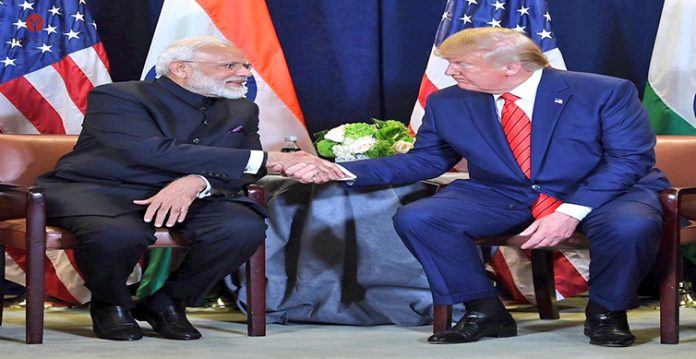While India has never been hesitant about raising human rights issues with the US, as opposed to the discernment that this is a one-sided discussion with New Delhi on edge all of the time.
In a call with President Donald Trump on June 2, 2020, Prime Minister Narendra Modi raised the then seething Black Lives Matter protest fuelled by the homicide of African American George Floyd by a white cop. It tends to be sensibly assumed that the top state leader had been satisfactorily informed ahead of time about Trump’s unbridled aggression for the development and his incessant outbursts against its exercises.
“Prime Minister Modi communicated concern with respect to the continuous civil disturbances in the US, and conveyed his all the best for an early goal of the circumstances,” said a readout of their telephone discussion delivered by the Indian service of outside undertakings only hours after around the same time.
ALSO READ: US Monitoring Rise in Human Rights Abuses in India: Blinken
Trump had called Modi about a totally unrelated issue. Under tension at home to get before the Covid-19 plague that was seething through the US, he believed Modi should get a transfer free from Hydroxychloroquine – an enemy of malarial medication that was being utilized by medical services experts as a prophylactic against SARS CoV2 – that was held up at some Indian port as a result of a prohibition on the product of medications and clinical supplies that India would require in its own battle against the pandemic.
Modi lifted the boycott soon after, yet in addition raised the civil disturbances. Also, it was uncommonly astonishing on the grounds that only half a month prior, during his February visit to India, President Trump had would not remark on fights in India and New Delhi, not exceptionally distant from where he was, against the Citizenship Amendment Act and the National Citizenship Register. Trump had said the matter was “truly up to India”.
Modi’s comments might appear to be unwarranted in that light, yet it was a genuine illustration of what External Affairs Minister S. Jaishankar said Wednesday, as he wrapped up his three-day visit, that India won’t be found “hesitant” to raise human rights issues exceptionally when Indians are focused on, distinctly alluding to the assault on two Sikhs in New York.
“Individuals are qualified for have sees about us. However, we are additionally similarly qualified for have sees about their perspectives, and about the interests and the anterooms and the word banks which drive that,” Minister Jaishankar said because of an inquiry at a preparation for Indian media correspondents, on whether basic freedoms circumstance in India figured in the 2+2 discussions as Secretary Blinken had said they did.
“Whenever there is a conversation, I can see you that we won’t hesitant about stand up. I would likewise, just so I adjust that point, let you know that we additionally have sees on others’ basic freedoms circumstance, including that of the United States. So we take up basic freedoms issues when they emerge in this country, particularly when they relate to our local area and as a matter of fact, we had a case yesterday.”
(This story has been sourced from a third-party syndicated feed, agencies. Raavi Media accepts no responsibility or liability for the dependability, trustworthiness, reliability, and data of the text. Raavi Media management/ythisnews.com reserves the sole right to alter, delete or remove (without notice) the content at its absolute discretion for any reason whatsoever.)


